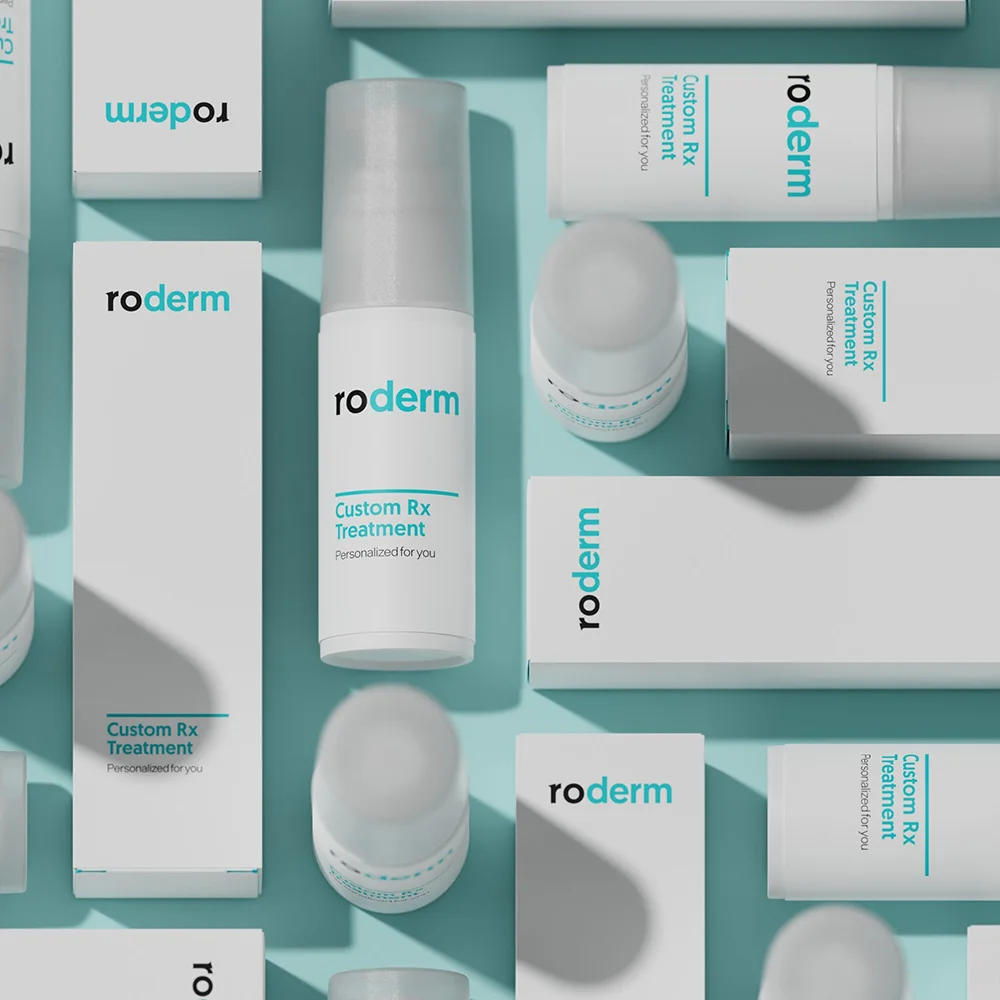Here's what we'll cover
Here's what we'll cover
Collagen seems to be all the rage these days, and with good reason. While collagen can be helpful for everyone, if you’re male you might be wondering what particular perks taking collagen could offer you. Well, there’s good news here: collagen benefits for men are numerous.
Many men are interested in taking collagen as they age. Evidence suggests that supplementing with collagen may help improve skin elasticity and reduce wrinkles (Kim, 2018). Collagen also shows promise when it comes to building muscle, recovering from exercise-related injuries, and keeping your heart healthy (Zdzieblik, 2015; Khatri, 2021; Tomosugi, 2017).
Read on for more information about collagen, its benefits for men, and what the different options are when it comes to supplementation.
What is collagen?
Collagen is a substance naturally produced in our bodies. It is abundant in our connective tissues and provides structural support to our skin, muscles, bones, cartilage, tendons, and ligaments. There are 28 different types of collagen in the body, but type I is the most common, making up about 90% of the body’s collagen (Wu, 2022).
Collagen is one of the most abundant proteins found in the body, comprising about a third of the body’s total protein (Shoulders, 2009).
What causes collagen deficiency?
We naturally produce less collagen as we age; this is the culprit behind sagging skin, wrinkles, and thinning skin (Al-Atif, 2022). But aging isn’t the only factor that can decrease the plumpness and youthful appearance of skin; both smoking and excessive sun exposure have similar effects (Yazdanparast, 2019; Rittié, 2015). Other factors that can accelerate the depletion of collagen in the body include alcoholism, nutrient deficiencies, and environmental toxins (Bolke, 2019).
Everyone experiences the signs of reduced collagen at some point (we can’t avoid aging forever!), but some of the signs that your body may be producing less collagen include (Wang, 2021; Bolke, 2019):
Loose skin
Drier skin
Thinning hair
More brittle nails
More wrinkles
Vitamin C is an important component in the synthesis of collagen; people who are deficient in vitamin C may have trouble producing adequate collagen (Wu, 2022).
Benefits of collagen for men
Collagen has potential benefits for men of all ages—from young men who are looking to increase muscle mass to older men hoping to decrease wrinkles, improve heart health, and recover from injuries (Oertzen-Hagemann, 2019; Kim, 2018; Tomosugi, 2017; Khatri, 2021).
Let’s take a closer look at the health benefits of collagen for men, including what the most current studies say.
Skin
There’s ample evidence for the benefits of collagen for the skin. For example, a 2019 study found that both short- and long-term supplementation with collagen helped in wound healing and reducing the signs of aging in the skin. Importantly, no serious side effects were reported (Choi, 2019). And a 2018 study found that collage supplementation worked to increase skin hydration and elasticity, and to decrease wrinkles (Kim, 2018).
Muscles
Collagen is a protein that plays an important role in the health of our muscles, ligaments, and tendons. Men who do strength training may find collagen supplementation helpful, but it may also benefit your muscles as you age.In 2019, a study was published showing that men who took a collagen supplement after resistance training were more likely to have increased body mass and muscle strength (Oertzen-Hagemann, 2019). Similar results have been seen in men as they age. Another study found greater increases in muscle strength and mass in elderly men who combined collagen supplementation with resistance training, than with resistance training alone (Zdzieblik, 2015).
Exercise and injury recovery
Collagen can help repair tissues and muscles and has been shown to help people recover from exercise-related injuries. This can be particularly helpful if you are a man who works out frequently, or is getting older, as it can be more difficult to recover from injuries as you age. One study found that collagen supplementation can help improve joint function and reduce joint pain (Khatri, 2021).
Heart health
Heart disease is something all men need to take seriously, as it’s the number one cause of death in men in the US (CDC, 2022). Taking care of your heart involves many factors, including healthy eating, reducing alcohol, quitting smoking, and increasing exercise. Collagen supplementation may also play a role in protecting the heart.
One study found that collagen may reduce atherosclerosis, which is the build-up of unhealthy fats and cholesterol in the walls of your blood vessels (Tomosugi, 2017). High triglycerides and cholesterol can clog your arteries, reduce blood flow, and contribute to heart attacks and strokes.
Types of collagen
Evidence suggests that collagen supplementation may help with issues like aging skin, muscle strength, cardiovascular health, and more. And there’s probably little downside, as people who use collagen supplements usually don’t have adverse reactions or harmful side effects (Choi, 2019).
There are several different types of collagen supplements, including collagen powders, pills, and creams. Some foods are also possible sources of collagen proteins, like bone broth and gelatin (Paul, 2019). Collagen creams are also popular, although topical treatments may be less effective than oral treatments since collagen production starts inside the body (Reilly, 2021).
Here's what you should know about the different types of collagen supplements.
Collagen supplements
Collagen supplements usually come in powder or pill form. Collagen powders can be mixed into a drink—lots of people mix it into their morning coffee. Data suggests that hydrolyzed collagen (collagen peptides) may be the preferred type of supplement, as this form is more readily broken down and absorbed by the body (Reilly, 2021).
Collagen supplements that contain additions such as vitamin C, zinc, biotin, and vitamin E may further enhance the benefits of collagen and help the body manufacture it (Bolke, 2019).
Bear in mind that collagen supplements are currently not regulated by the FDA, so you should read the ingredient label carefully and consult your healthcare provider before taking a collagen supplement.
Food sources
There are several different food sources for collagen. It’s unclear if eating these foods will boost collagen in your body, but there is usually no harm in adding them to your diet (Paul, 2019). If you are adding red meat to your diet, though, you should do this in moderation, as high consumption of red meat may not be recommended. It’s wise to also boost your vitamin C intake if you are adding collagen-rich foods to your diet, as vitamin C helps the body absorb collagen (NIH, 2021).
Popular dietary sources of collagen include:
Bone broth (made from beef, chicken, or fish bones)
Cuts of meat containing connective tissue, like pork chops and brisket
Gelatin
Vitamin C foods to boost these effects include:
Citrus fruits
Berries
Bell peppers
Leafy greens
Broccoli and brussels sprouts
Tomatoes
Collagen has many benefits for men, and there are generally no significant downsides to adding it to your supplementation routine or diet to see if it helps. However, before you make any dietary changes or start a new supplement, you should always consult with your healthcare provider.
DISCLAIMER
If you have any medical questions or concerns, please talk to your healthcare provider. The articles on Health Guide are underpinned by peer-reviewed research and information drawn from medical societies and governmental agencies. However, they are not a substitute for professional medical advice, diagnosis, or treatment.
Al-Atif, H. (2022). Collagen supplements for aging and wrinkles: a paradigm shift in the fields of dermatology and cosmetics. Dermatology Practical & Conceptual, 12 (1), e2022018. doi:10.5826/dpc.1201a18. Retrieved from https://www.ncbi.nlm.nih.gov/pmc/articles/PMC8824545/
Bolke, L., Schlippe, G., Gerß, J., et al. (2019). A collagen supplement improves skin hydration, elasticity, roughness, and density: results of a randomized, placebo-controlled, blind study. Nutrients, 11 (10) , 2494 . doi:10.3390/nu11102494. Retrieved from https://www.ncbi.nlm.nih.gov/pmc/articles/PMC6835901/
Centers for Disease Control and Prevention (CDC). (2022). Men and heart disease. Retrieved on Dec. 5, 2022 from https://www.cdc.gov/heartdisease/men.htm
Choi, F. D., Sung, C. T., Juhasz, M. L., et al. (2019). Oral collagen supplementation: A systematic review of dermatological applications. Journal of Drugs in Dermatology, 18 (1), 9 . Retrieved from https://jddonline.com/articles/oral-collagen-supplementation-a-systematic-review-of-dermatological-applications-S1545961619P0009X/
Harvard School of Public Health (Harvard). (2022). Collagen. Retrieved on Dec. 5, 2022 from https://www.hsph.harvard.edu/nutritionsource/collagen/
Hexsel, D., Zague, V., Schunck, M., et al. (2017). Oral supplementation with specific bioactive collagen peptides improves nail growth and reduces symptoms of brittle nails. Journal of Cosmetic Dermatology, 16 (4) , 520-526 . doi:10.1111/jocd.12393. Retrieved from https://pubmed.ncbi.nlm.nih.gov/28786550/
Khatri, M., Naughton, R. J., Clifford, T., et al. (2021). The effects of collagen peptide supplementation on body composition, collagen synthesis, and recovery from joint injury and exercise: a systematic review. Amino Acids, 53 (10), 1493-1506. doi:10.1007/s00726-021-03072-x. Retrieved from https://pubmed.ncbi.nlm.nih.gov/34491424/
Kim, D. U., Chung, H. C., Choi, J., et al. (2018). Oral intake of low-molecular-weight collagen peptide improves hydration, elasticity, and wrinkling in human skin: A randomized, double-blind, placebo-controlled study. Nutrients, 10 (7), 826 . doi:10.3390/nu10070826. Retrieved from https://www.ncbi.nlm.nih.gov/pmc/articles/PMC6073484/
León-López, A., Morales-Peñaloza, A., Martínez-Juárez, V. M., et al. (2019). Hydrolyzed collagen-sources and applications. Molecules, 24 (22): 4031 . doi:10.3390/molecules24224031. Retrieved from https://www.ncbi.nlm.nih.gov/pmc/articles/PMC6891674/
National Institutes of Health (NIH). (2021). Vitamin C: fact sheet for health professionals. Retrieved on Dec. 5, 2022 from https://ods.od.nih.gov/factsheets/VitaminC-HealthProfessional/
Oertzen-Hagemann, V., Kirmse, M., Eggers, B., et al. (2019). Effects of 12 weeks of hypertrophy resistance exercise training combined with collagen peptide supplementation on the skeletal muscle proteome in recreationally active men. Nutrients, 11 (5), 1072. doi:10.3390/nu11051072. Retrieved from https://www.ncbi.nlm.nih.gov/pmc/articles/PMC6566884/
Paul, C., Leser, S., & Oesser, S. (2019). Significant amounts of functional collagen peptides can be incorporated in the diet while maintaining indispensable amino acid balance. Nutrients, 11 (5), 1079 . doi:10.3390/nu11051079. Retrieved from https://www.ncbi.nlm.nih.gov/pmc/articles/PMC6566836/
Reilly, D. M. & Lozano, J. (2021). Skin collagen through the lifestages: importance for skin health and beauty. Plastic and Aesthetic Research, 2021 (8), 2. doi:10.20517/2347-9264.2020.153. Retrieved from https://parjournal.net/article/view/3863
Rittié, L. & Fisher, G. J. (2015). Natural and sun-induced aging of human skin. Cold Spring Harbor Perspectives in Medicine, 5 (1), a015370. doi:10.1101/cshperspect.a015370. Retrieved from https://www.ncbi.nlm.nih.gov/pmc/articles/PMC4292080/
Shoulders, M. D. & Raines, R. T. (2009). Collagen structure and stability. Annual Review of Biochemistry, 2009 (78), 929-58 . doi:10.1146/annurev.biochem.77.032207.120833. Retrieved from https://www.ncbi.nlm.nih.gov/pmc/articles/PMC2846778/
Tomosugi, N., Yamamoto, S., Takeuchi, M., et al. (2017). Effect of collagen tripeptide on atherosclerosis in healthy humans. Journal of Atherosclerosis and Thrombosis, 24 (5), 530-538. doi:10.5551/jat.36293. Retrieved from https://www.ncbi.nlm.nih.gov/pmc/articles/PMC5429168/
Varani, J., Dame, M. K., Rittie, L., et al. (2006). Decreased collagen production in chronologically aged skin: roles of age-dependent alteration in fibroblast function and defective mechanical stimulation. American Journal of Pathology, 168 (6), 1861-8. doi:10.2353/ajpath.2006.051302. Retrieved from https://www.ncbi.nlm.nih.gov/pmc/articles/PMC1606623/
Wang, H. (2021). A review of the effects of collagen treatment in clinical studies. Polymers, 13 (22), 3868. doi:10.3390/polym13223868. Retrieved from https://pubmed.ncbi.nlm.nih.gov/34833168/
Wu, M., Cronin, K., & Crane, J. S. (2022). Biochemistry, collagen synthesis. StatPearls. Retrieved on Dec. 5, 2022 from https://www.ncbi.nlm.nih.gov/books/NBK507709/
Yazdanparast, T., Hassanzadeh, H., Nasrollahi, S. A., et al. (2019). Cigarettes smoking and skin: A comparison study of the biophysical properties of skin in smokers and non-smokers. Tanaffos, 18 (2), 63-168. Retrieved from https://www.ncbi.nlm.nih.gov/pmc/articles/PMC7230126/
Zdzieblik, D., Oesser, S., Baumstark, M. W., et al. (2015). Collagen peptide supplementation in combination with resistance training improves body composition and increases muscle strength in elderly sarcopenic men: a randomised controlled trial. British Journal of Nutrition, 114 (8), 1237-1245 . doi:10.1017/S0007114515002810. Retrieved from https://www.ncbi.nlm.nih.gov/pmc/articles/PMC4594048/










